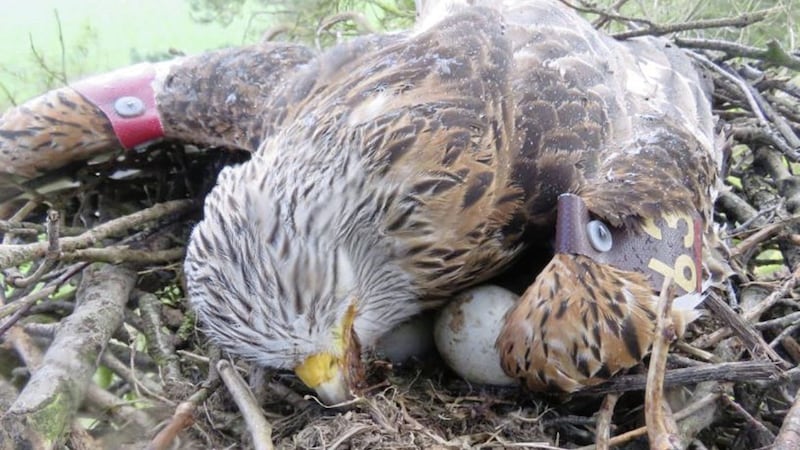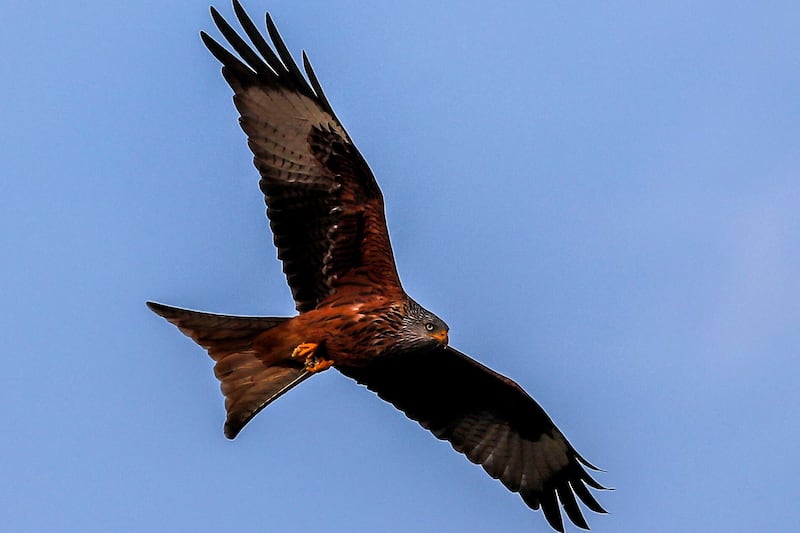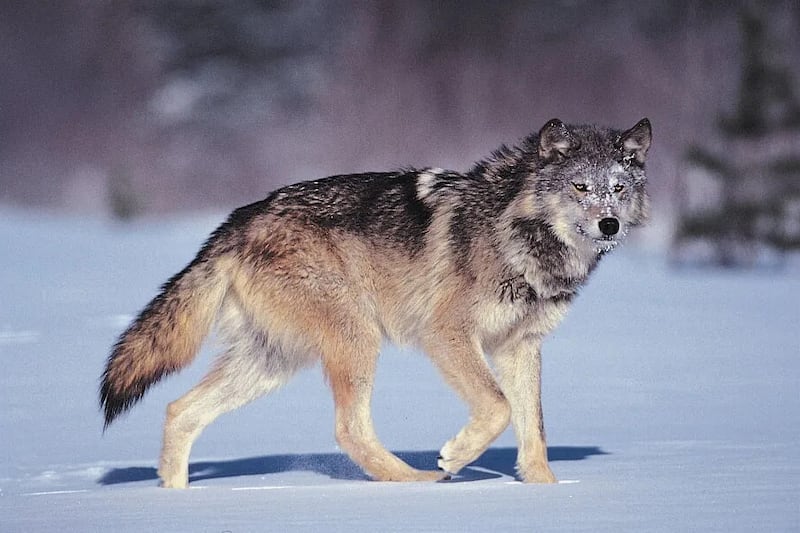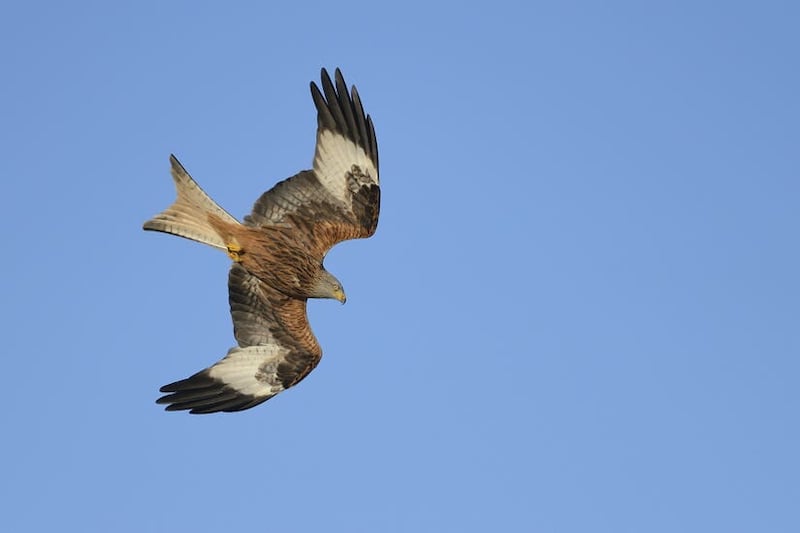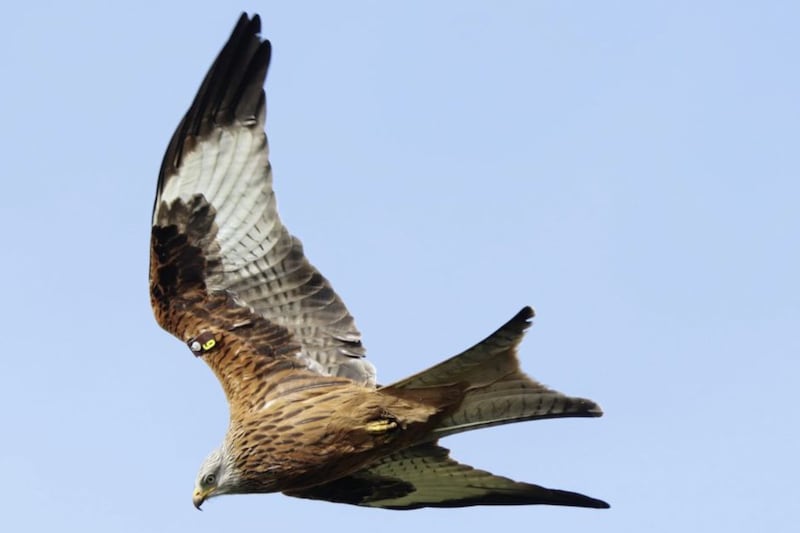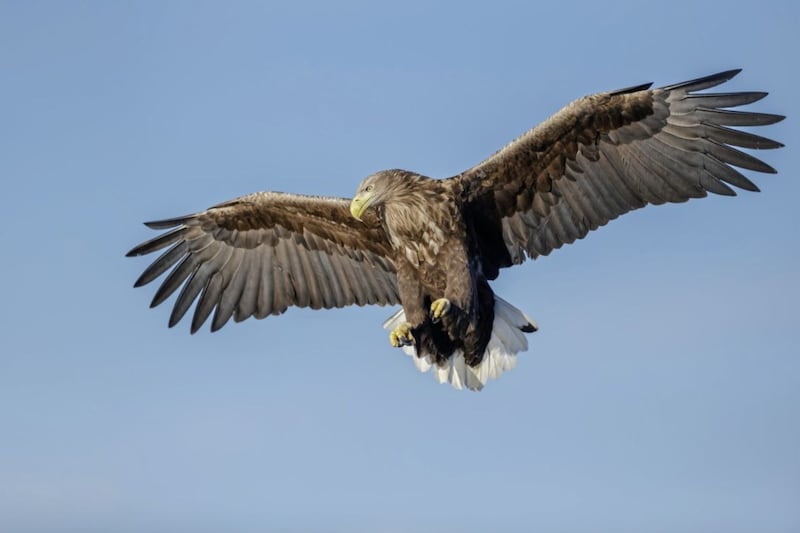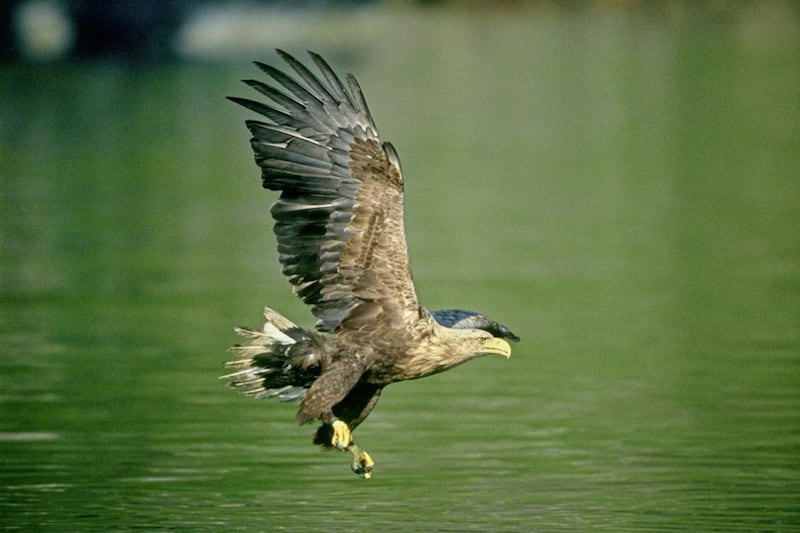POLICE have launched an investigation after a pair of protected birds died after being poisoned in Co Down.
The RSPB said a male red kite was found in distress close to a known nest site in the Katesbridge area on April 24, but died shortly afterwards.
When a red kite project officer from the charity attended the scene, a female parent bird was found immobile on the nest - she too was dead.
The bodies of the parent birds were collected and taken for toxicology testing by the PSNI, which revealed that both birds - known as Blue 21 and Red 63 because of their identifying tags - died from a highly toxic pesticide, Carbofuran poisoning.
The RSPB launched a rescue mission to try to save three orphaned eggs found in the nest beneath the deceased mother. It used two donor nests to take the eggs from the pair of red kites.
But neither of the two eggs placed in one donor nest hatched. At a second nest, a chick did hatch but the charity is not sure whether it was the original egg, or the donor one placed alongside it.
However, the charity said the attempt was worth it to try to salvage something from a bad situation.
A nestcam was also installed by RSPB to monitor this chick - the first time staff have been able to monitor behaviour and development as well as share the red kite's early life.
Claire Barnett from the RSPB said they were "shocked and saddened by what is the loss of a generation of red kites".
"With only around 20 breeding pairs in Northern Ireland, our red kite population is particularly vulnerable to persecution," she said.
"Carbofuran is an illegal and deadly poison and should not be used in our countryside. It is such an incredibly dangerous substance.
"We would like to once again make it clear that red kites are mostly scavengers and feed on roadkill and other dead animals they find on their foraging flights.
"During the breeding season, adults will often hunt young crows, magpies, rats and rabbits. They are no threat to livestock or game."
Emma Meredith, PSNI wildlife liaison officer, said: "We would have serious concerns over any poison but particularly over Carbofuran.
"We are disappointed that we are still dealing with cases involving Carbofuran, an incredibly dangerous substance and one which can kill birds of prey but also a child, family pet or any adult coming into contact with it.
"The person responsible needs to be identified to ensure that no further risk is posed to other wildlife, domestic pets, or even humans."
